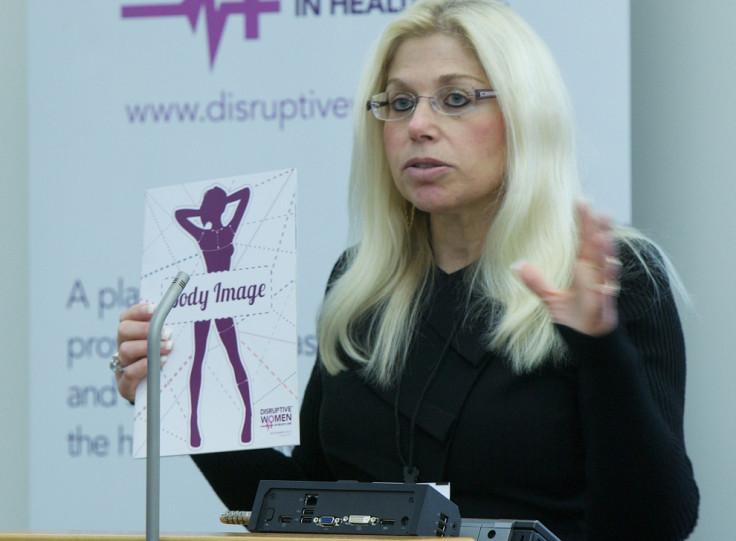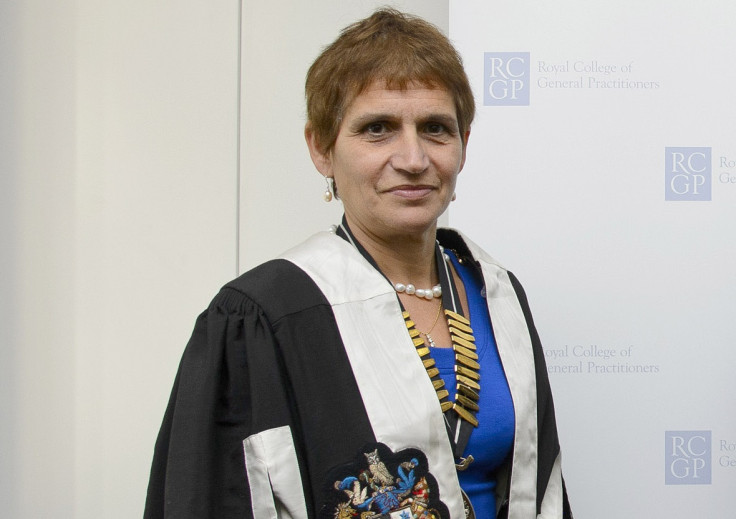Disruptive Women: How the 'Mother of all Networks' is Changing Healthcare for the Better

Six years ago, Disruptive Women in Health Care was launched in Washington DC as a digital platform for ideas, thoughts and solutions in the health sphere, with just 12 women.
Now Disruptive Women has over 100 global contributors, from former Members of Congress and health professionals to economists. This week saw the concept make its way across the Atlantic – with the launch of Disruptive Women UK.
Robin Strongin founded the platform after spending over 30 years working in healthcare. She served as a member of the US Congress on the energy and commerce health sub-committee, worked in the Department of Health and Human Services and founded her own public affairs firm to communicate health policies into action.
Throughout her career, Strongin came into contact with women making remarkable contributions. But she also witnessed the asymmetrical recognition and opportunities they were afforded. To change this, she launched Disruptive Women – the "mother of all networks".
"I saw that there were women doing great work alongside men, and the men were getting promoted, given better opportunities and had better access to capital," Strongin told IBTimes UK. "What I wanted to do was to get women together to share ideas. The impetus was to connect the amazing people I've met."
And so, Disruptive Women was born. "It just took off – I think it really hit a nerve. Women really saw themselves as disruptive and wanted to exchange their ideas and come together."
But what does Disruptive Women aim to do?
The platform is designed to improve the way healthcare is delivered by bringing provocative and often controversial ideas to light. Essentially, it provides women with a voice to publish their visions and opinions that might otherwise have languished in a classroom or lab.
Importantly, it covers all fields of health – including technology, transport engineering and literacy.
"The one thing that we wanted from the outset was to cover more than just breasts and ovaries," Strongin explained. "While it is incredibly important that we address maternal health, it is more about what women are contributing to the betterment of health across the board.
"We're doing great work in housing, literacy, finance, research and development, because we can't effectively improve somebody's health if we don't address the whole infrastructure," she added.
"If you have someone who can't get to a healthcare centre because they have mobility issues or they have no money, how can they be an engaged patient?"

Are men the problem?
The concept of a women-only healthcare platform, which addresses such a variety of fields is unique, but Strongin added that Disruptive Women is not designed to exclude men. Rather, it is to include women in the process of healthcare policymaking.
"Importantly, we don't want to exclude men," she explained. "It's important that they are a part of this, we learn from them and them from us. It is a positive force – the last thing we want to do is discriminate."
The platform even has a Man of the Month section – to recognise men who have excelled in the health field. In February, Dr William Cohn of the Texas Heart Institute was hailed for creating the Cohn Cardiac Stabiliser, a device which makes it possible to perform coronary artery bypass surgery on a beating heart without the use of a heart-lung machine.
"Still, it is overwhelmingly men who are in positions of power," she added. "There are a few women with authoritarian positions on important health programmes, but when you really look at the top positions – people who have budget authority and are running organisations – the ultimate decision-making authority lies with men."
Strongin draws on a study led by Harvard Business School earlier this year, which found investors were more likely to be swayed by a man's business pitch, compared with the exact same pitch delivered by a woman. Changing this is key, she added.
What changes has Disruptive Women made so far?
The main successes have come from connecting influential women from around the world, and getting more women onto panels at health conferences.
"This is critical," Strongin said. "Particularly in the technology sphere, there are often very few women on major panels.
"I will write to the organisers if I don't see women on panels. I won't just say 'shame on you' – but I'll suggest women who are suited to the topic. We can't just call people all, we have to step up to the plate and give them a solution."
Disruptive Women has been asked to identify female keynote speakers for major conferences around the world. In September, they were a media partner for the Economist's Health Care Forum.
What does the future hold for the platform?
"We are really looking to expand and collaborate with more people," Strongin said. "We are looked at as a resource, as well as a place to gather online and in person, which has become our hallmark."
Disruptive Women launched in the UK to share ideas and hold more events and conferences. The group regularly hosts forums, book discussions and receptions on timely – and often controversial - health policy topics.
"The US and UK have a longstanding relationship back and forth within healthcare and we can learn and share ideas."
In November, Disruptive Women are hosting a forum on a topic close to Strongin's heart – healthcare for female veterans.
"There has been a lot of coverage of military sexual trauma and post-traumatic stress disorder, but it is not well dealt with," Strongin explains. "Aside from that, in one third of Veterans Affairs medical centres in the US, not one contains a gynaecologist. That's not ok."
"I've met the most amazing women," she said, adding that the platform goes much further than online. "People want to help and meet one another. People have forgotten how much energy there is in a room when women are put together."
© Copyright IBTimes 2025. All rights reserved.






















